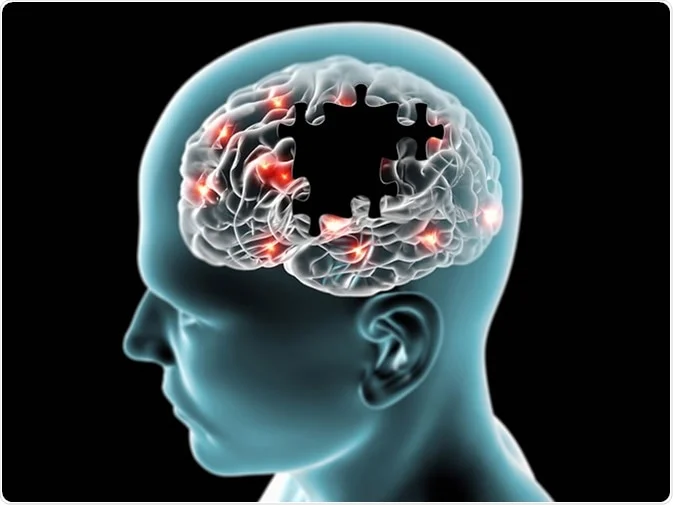What if I said you had a second brain? Would you believe that? You do, but it is nothing like the expandable memory option you get when you insert a Secure Digital (SD) card into your smartphone, but all humans do have a second brain. This ‘secondary’ brain is not a different compartment in your head, it is the highly sensitive lining of your gut. The brain and the gut work synergistically to keep the body and mind healthy. Biologists call this phenomenon, the gut-brain axis and it describes a non-stop, two-way communication between the gut and the brain, which when interrupted can result in stroke, Alzheimer’s disease (AD), depression, and other mental health problems.
A recent study conducted by Adewuyi et.al reveals that there is a strong link between gastrointestinal tract (GIT) disorders and the most popular form of dementia known as Alzheimer’s disease. Some common examples of gastrointestinal tract disorders such as peptic ulcer disease (PUD), gastroesophageal reflux disease (GERD), gastritis-duodenitis, and irritable bowel syndrome have strong correlations with the gradual decline of cognitive ability experienced in AD patients. In fact, researchers recently discovered that there is a “sixfold increased risk of Alzheimer’s disease in individuals with inflammatory bowel disease (IBD), while also predicting over five-fold increased incidence across all forms of dementia.”
Read Also: Loss of Indigenous Languages: A Threat to Herbal Medicines
Why is this worth any attention at all? According to Communications Biology, by the year 2030, over 82 million people—and about 152 million by 2050—are projected to suffer from AD. The researchers, Dr. Adewuyi and colleagues at the Center for Precision Health and the Collaborative Genomics and Translation Group at Edith Cowan University, were able to establish that, understanding the two-way link between the brain’s cognitive/emotional centers and the intestines, was necessary to provide new insights into the genetics behind the gut-brain axis. Adding that, it would help scientists uncover novel ways to detect AD and related diseases more promptly.
The sad thing about diseases like AD is that there are no curative treatments, and patients have to merely manage it with statins (a group of medicines that can help lower the level of low-density lipoprotein (LDL) cholesterol in the blood). Statins medicines are therapeutically beneficial in treating both Alzheimer’s disease and gastrointestinal tract disorders. However, taking measures to keep the sync of the gut-brain axis intact is a very potent way to prevent the disease. What then is the science behind changes in one’s gut potentially shutting down one’s brain? Although there are many studies reporting a correlation between AD and GIT traits, the biological mechanism(s) responsible for this association is not yet clear.
However, experts opine that maintaining a healthy gut is a good step toward preventing AD. There are trillions of bacteria, fungi, and viruses living within your intestines. Since most of them are very helpful in the digestion process, keeping them alive is one way to maintain a well-functioning gut. The role these organisms play in the breakdown and absorption of food is germane for energizing your body and maintaining the gut’s sync with the brain. Also, in your gut, there are about 500 million neurons, all of which are connected to the brain through nerves. One of these nerves is known as the vagus nerve and it links your gastrointestinal tract to your nervous system, sending signals back and forth through what is known as neurotransmitters.
According to Dr. Jess Braid, “The gut produces 90% of our happy hormone serotonin, 50% of our pleasure-seeking dopamine, melatonin – the sleep hormone – and oxytocin, the cuddle hormone, hence when the balance of organisms in our gut is wrong, it can affect our mood and our behavior.” By consuming prebiotic and probiotic foods such as whole grains, vegetables, and yogurts, you keep the microbes at their optimum for neurotransmitters which greatly influences our ‘fight or flight’ response and emotions overall. In addition to these measures, cutting down on abuse/misuse of antibiotics and cholesterol-high foods are important tips for building a solid GIT immunity.
By doing all you can to support a smooth gut-brain sync, you are preventing or lowering your risks of suffering from depression, anxiety, schizophrenia, autism spectrum disorders, migraine, and epilepsy. You are also taking a bold step towards exempting yourself from the 152 million people who would be down with AD by 2050.
Ehi-kowoicho Ogwiji is a storyteller and natural scientist who is given to advocacy for a science-literate Africa. Ehi-kowoicho aspires to be a renowned science communicator and STEM thought leader in Africa and beyond. She writes from Abuja, Nigeria. Follow her on social media @ogwijiehi or email her at [email protected]










